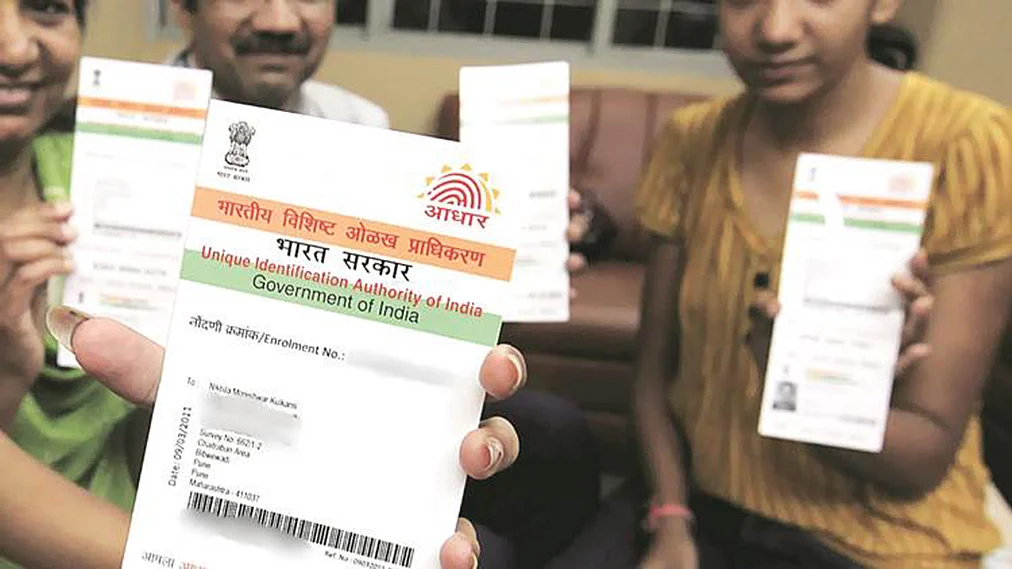If Aadhaar becomes all pervading, you can forget your privacy
While the Unique Identification number can very well be used as a tool of surveillance and as an instrument of political control, its role in benefiting the poor is vastly exaggerated

The country’s Apex Court has just started hearing the arguments about privacy concerns over the Aadhaar (UID) project. So it’s only prudent to look at whether these concerns are valid.
It was in 2010 that I had met Nandan Nilekani, the then chairman of the Unique Identification Authority of India, for a long interaction as I was writing a few pieces on the matter for both Indian and international publications. I had voiced some concerns that must not have pleased Nilekani then but I am sure, seven years down, he would agree that some of those fears were not completely unfounded.
It is true that in India, inability to prove one's identity has been one of the biggest barriers preventing the poor from accessing benefits, subsidies and justice. It is also true that prior to Aadhaar, there was no nationally accepted and verified identity number.
However, the lure, convenience and cost-effectiveness of avoiding a full cycle of identity verification which involves photocopying of numerous documents, attestation from gazetted officers, duplication of efforts and identity silos can’t negate concerns over privacy matters.
It is worth mentioning here that India does not have any foolproof data protection laws on the lines of United States Federal Privacy Statute or the European Directive on Data Protection. This causes further discomfort to people who are apprehensive of data and identity theft, wrong use of information and selective targeting of critics and opponents by a regime in power who will have access to all the data.
If data is hacked like in Reliance Jio’s recent case, identity theft will become a reality. UIDAI works through agencies, many of which are private entities and may not have even basic Internet security protocols in place. Who takes responsibility in such a case of breach?
Apart from the element of bodily integrity being violated by the Aadhaar project, another criticism it has faced is that upon death, and specially after rigor mortis sets in, the biometric parameters of Aadhaar won’t be able to identify the deceased. This argument has long been put forward by those who advocated the DNA identification process right at the very beginning.
Add concerns over surveillance to these. With the number now being linked to bank accounts, passports, Income Tax filings, mobile phone numbers, your personal lives are going to be open books to people who have access to the data.
History repeats itself when the past is forgotten. One wonders if the architects of the Aadhaar project actually paid heed to the fact that organised information on citizens, residents and ethnic groups has been used as an instrument of social and political control. It has been used as a weapon in war and has been used to target specific population groups. Adolf Hitler's Nazi government in Germany launched the first identification drive in the modern world. Hitler's Germany gave the responsibility of the population mapping exercise to International Business Machines (IBM) who also devised the punch card and slot machine. Both would be used by the Nazis to target, segregate, ghettoise, deport and exterminate Jews, communists and other political rivals.
Now, is there any guarantee that a reactionary and autocratic government, when it comes to power (if it is already not in power), will not make use of the information to identify, frame and neutralise political opponents, rights activists and everybody else who threatens the regime? An IBM Hollerith D-11 card sorting machine, used for the census of 1933 that first identified the Jews, still remains at the United States Holocaust Museum in Washington DC as a grim reminder of the perils of organised information falling into wrong hands.
The policy makers and their supporters have, till now, supported Aadhaar, saying how it will benefit the poor and how concerns over privacy are secondary to those. There is a major fallacy in this logic. Aadhaar refers to just financial inclusion and not economic inclusion of the poor. What propagators of the UID campaign have failed to drive home is how it is going to benefit the poorest of the poor and usher in progress of those at the peripheries of the development paradigm. It is an identification exercise and guarantees no rights, subsidies or entitlements. In a country where a BPL Card is also not enough ground for allocation of Mahatma Gandhi National Rural Employment Guarantee Act (MNREGA) work, it is hard to see how a Unique Identification Number will make any difference.
Follow us on: Facebook, Twitter, Google News, Instagram
Join our official telegram channel (@nationalherald) and stay updated with the latest headlines
- Surveillance
- Nandan Nilekani
- Aadhar
- Unique Identification Authority of India
- right to privacy
- Nazi Germany
